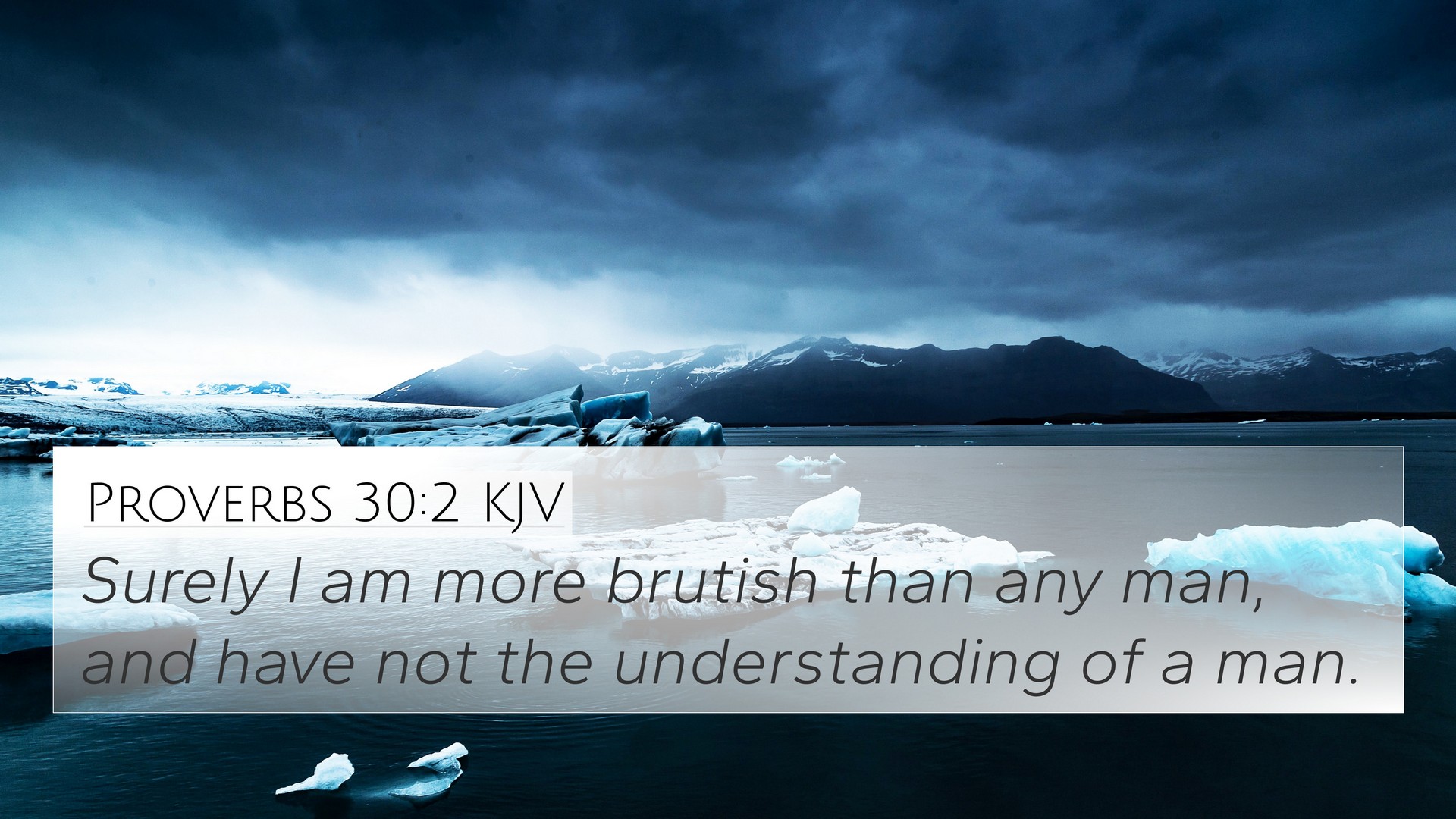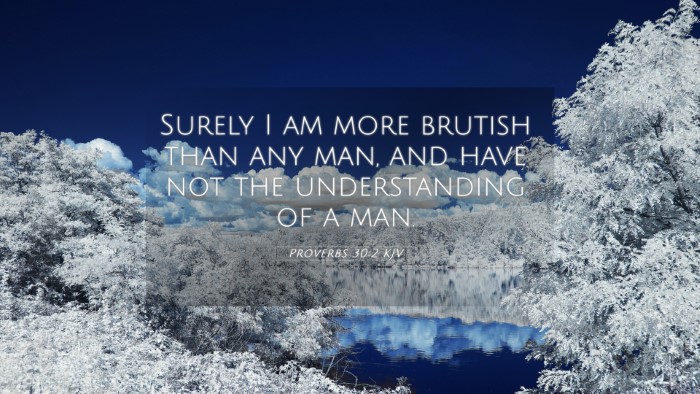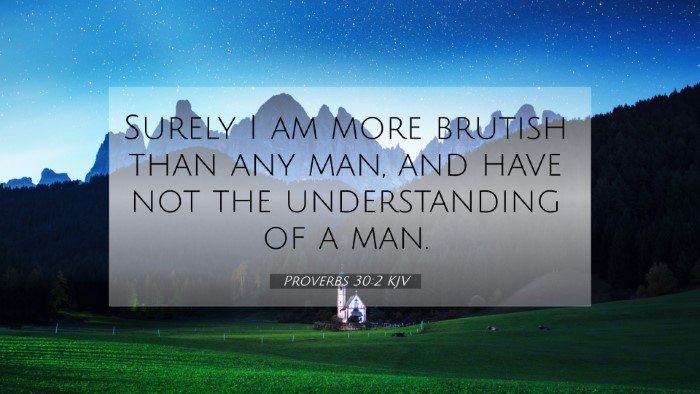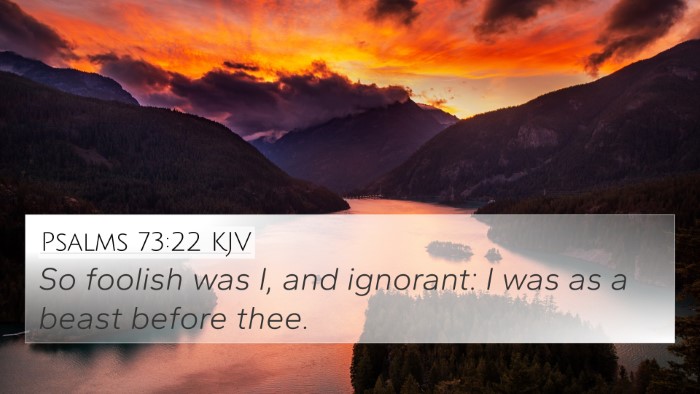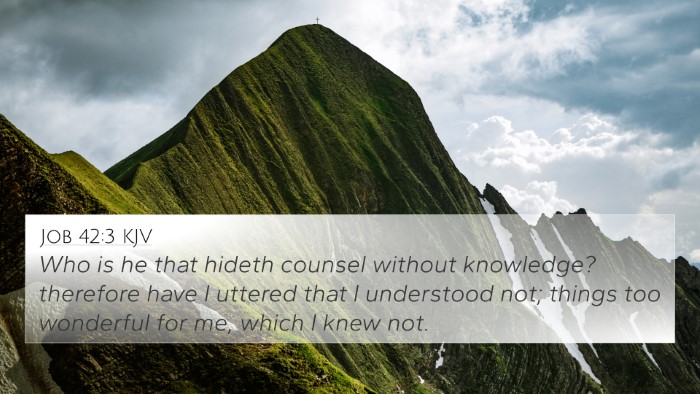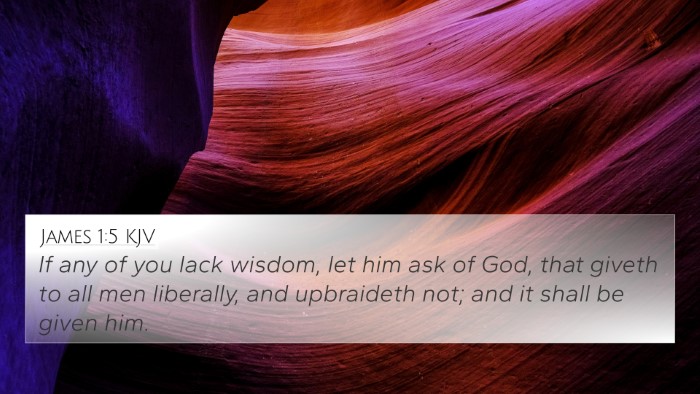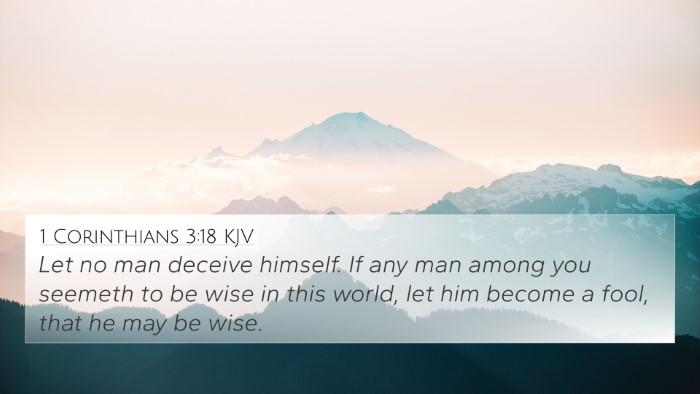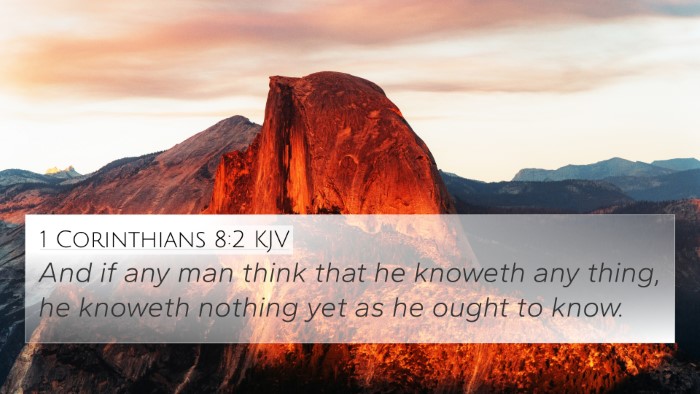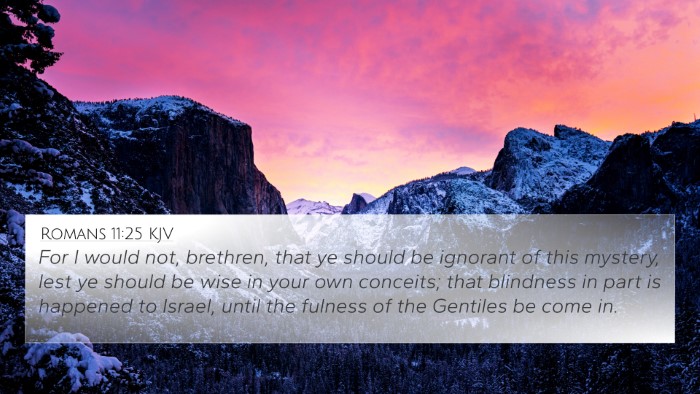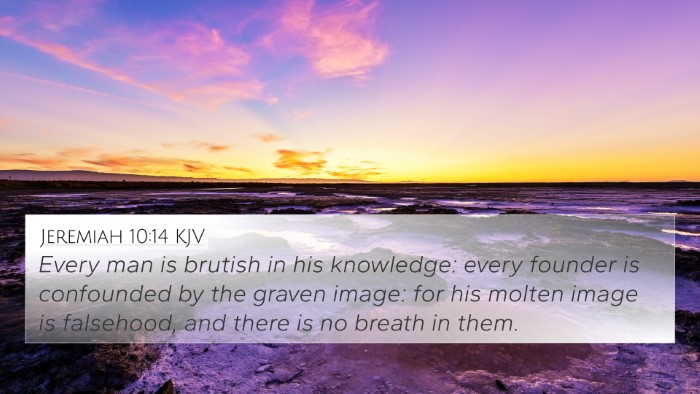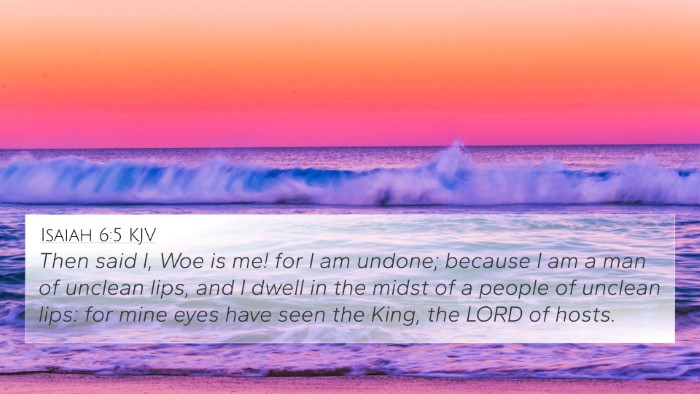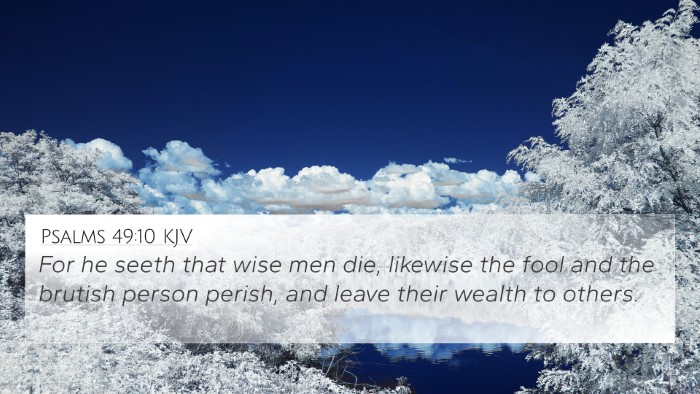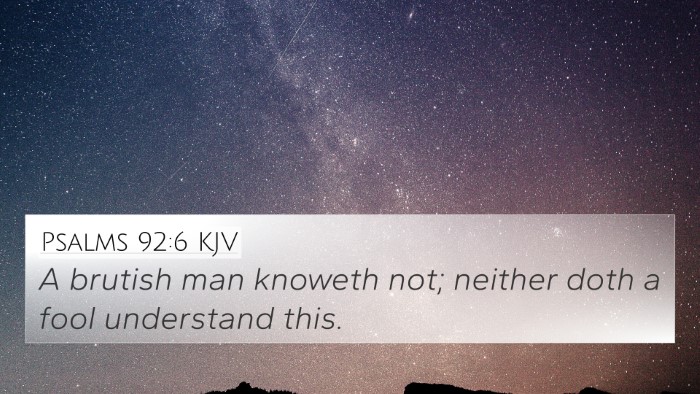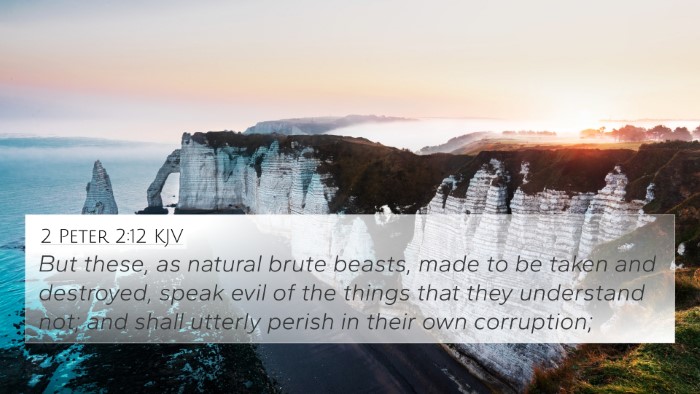Summary and Interpretation of Proverbs 30:2
The verse Proverbs 30:2 states: "Surely I am more brutish than any man, and have not the understanding of a man." This verse emphasizes humility and recognition of one's own limitations.
Contextual Background
In this section, we aim to explore the meaning of Proverbs 30:2 by pulling insights from noted public domain commentaries. The verse reflects an essential theme in the Book of Proverbs concerning wisdom and self-awareness.
Insights from Commentaries
-
Matthew Henry:
Henry draws attention to the speaker's admission of ignorance and brute animalistic tendencies. He emphasizes that true wisdom begins with acknowledging one's lack of understanding.
-
Albert Barnes:
Barnes interprets this verse to reflect the human condition, where individuals fall short of divine understanding without the influence of God's wisdom. The speaker represents all humanity in its frailty.
-
Adam Clarke:
Clarke notes that the term "brutish" suggests a willful ignorance. The admission here serves as a foundation for seeking knowledge and wisdom urgently, a recurring theme in Proverbs.
Thematic Connections
Proverbs 30:2 aligns significantly with larger biblical themes regarding the nature of wisdom and the folly of pride.
Bible Verse Cross-References
-
Proverbs 1:7:
“The fear of the Lord is the beginning of knowledge; fools despise wisdom and instruction.” This verse complements the need for humility in the pursuit of wisdom, highlighting a common thread in Proverbs.
-
Job 28:28:
“And unto man he said, Behold, the fear of the Lord, that is wisdom; and to depart from evil is understanding.” Links with Proverbs 30:2 by underscoring that lack of fear leads to a lack of understanding.
-
Psalm 14:2-3:
This Psalm states that “the Lord looked down from heaven... to see if there were any that did understand, and seek God.” It reinforces the universal human condition of ignorance without divine intervention.
-
1 Corinthians 1:25:
“Because the foolishness of God is wiser than men; and the weakness of God is stronger than men.” This New Testament parallel reflects the idea that human wisdom pales in comparison to divine wisdom.
-
Romans 12:3:
“For I say, through the grace given unto me, to every man that is among you, not to think of himself more highly than he ought to think; but to think soberly...” This verse aligns well with the humility expressed in Proverbs 30:2.
-
Proverbs 26:12:
“Seest thou a man wise in his own conceit? There is more hope of a fool than of him.” This reiterates the danger of human pride in knowledge, revealing a core message echoed throughout Proverbs.
-
Isaiah 5:21:
“Woe unto them that are wise in their own eyes, and prudent in their own sight!” Reinforces the need for divine wisdom rather than self-reliance, much like the acknowledgment in Proverbs 30:2.
Conclusion
Proverbs 30:2 serves as a powerful reminder of the limitations of human understanding and wisdom. It encourages readers to seek knowledge through humility and the fear of the Lord, framing the pursuit of wisdom as an essential journey for all believers.
By employing Bible cross-referencing techniques, we can glean deeper insights into the interconnectedness of scripture, revealing themes of wisdom and understanding prevalent throughout the Bible.
